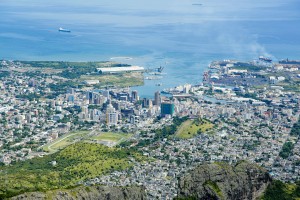By Nasseem Ackbarally
Routinely appearing at the top of African competitiveness and business environment rankings, Mauritius has carved out a niche as a small safe haven for investors. Even here, however sometimes deals go wrong – in June last year, for example, the owners of the Mont Choisy shopping centre in Grand Baie filed a complaint against the retailer Pick n Pay, alleging that it had reneged on a long lease. Pick n Pay denied the allegations, and the case is heading for arbitration.

Arbitration is widely used as a means of dispute resolution in cross-border deals, preferred by investors to becoming entangled in domestic courts and arguments over jurisdiction. A third party arbiter, often in London, Singapore or another international financial centre, is appointed to oversee disputes, committing both parties to the same legal system – and feeding the legal profession in arbitration centres.
Mauritius, which has already established itself as a hub for financial flows and fund administration, is planning to move into the arbitration business. Now two years old, the Mauritius International Arbitration Centre (MIAC) aims to establish itself as an alternative for companies looking for an African centre for dispute resolution.
“Mauritius is popping up as a good compromise between London, Singapore, South Africa and others because it is a happy neutral ground and neutrality is very important,” says Duncan Bagshaw, registrar of the MIAC.
Bagshaw says that the country has several natural advantages – it is an African country, but it is culturally diverse and closer to Asia than the rest of the continent. Its population has Francophone and Anglophone elements, and its legal system is rare in that it combines British common law and French civil law.
Perhaps more compellingly, it sits at the confluence of developed and developing markets – whereas most leading arbitration centres sit in the former. As Africa’s trade shifts to include a greater focus on Asian markets – several of which have strong economic ties with Mauritius – that perceived neutrality could be very valuable, Bagshaw says.
Likewise, Mauritius’ inclusion in the Tripartite Free Trade Area, which links the Common Market for Eastern and Southern Africa, the Southern African Development Community and the East African Community, could expand the country’s role as a centre for fund structuring and administration for companies looking to invest regionally. The country aims to become like Singapore in Asia or Switzerland in Europe – part of its region, but uniquely open to the rest of the world.
Since reforming its legal code five years ago, the island has also attracted a number of international law firms, looking to take advantage of this market.
While Mauritius belongs to both the Commonwealth and the Francophone countries, its ultimate court of appeal remains the Judicial Committee of the Privy Council – a London-based court that mainly settles disputes in UK crown dependencies.
Local Mauritian companies are beginning to see the value of arbitration, according to Barlene Pillay, who manages the Mauritian Chamber of Commerce and Industry’s Arbitration and Mediation Centre.
As more global companies move into the island, he believes that it will become more commonplace.“It is a very important management tool for business, and it will develop naturally as global business develops in Mauritius,” he says.
In the business community, many operators favour arbitration and meditation rather than taking the matter to the Court.
Suryadeho Punchoo, chairman of the Mauritius Fair Trade Cooperative Federation, says that, should a dispute arise between his members, he would definitely refer it to arbitration.
Likewise, trade consultant Ajaye Joghoo believes in introducing a clause in all contracts that all disputes should be resolved by mediation first, “then if unsuccessful, we go for arbitration”.
He adds, however, that the costs of arbitration make it inaccessible to the majority of Mauritians, especially to small and medium-sized enterprises.
The speed and efficiency of seeking this kind of resolution, however, can make it worth the money.
Ganesh Ramalingum, executive director of internet company DCL Communications, says “time is of the essence for business people who want their disputes to be resolved fast. In the courts, there will be a winner and a loser, but in arbitration, there is a win-win situation just like in mediation.
“Mauritius is now moving more and more from the old system of ‘let’s take our dispute, to the court ‘to let’s resolve it by ourselves through arbitration’,” he says.
Very often, the judges in courts themselves ask the parties in dispute: ‘Have you tried arbitration before coming here?’.
Source: African Business Magazine


